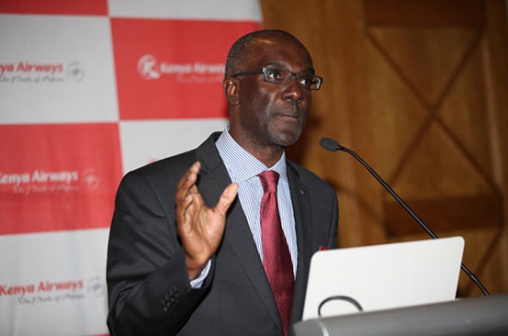×
The Standard e-Paper
Smart Minds Choose Us

Kenya Airways Chief Executive Mbuvi Ngunze has resigned after a turbulent two-year stint at the helm of the airline.
The decision comes months after the national carrier pilots had demanded his exit.